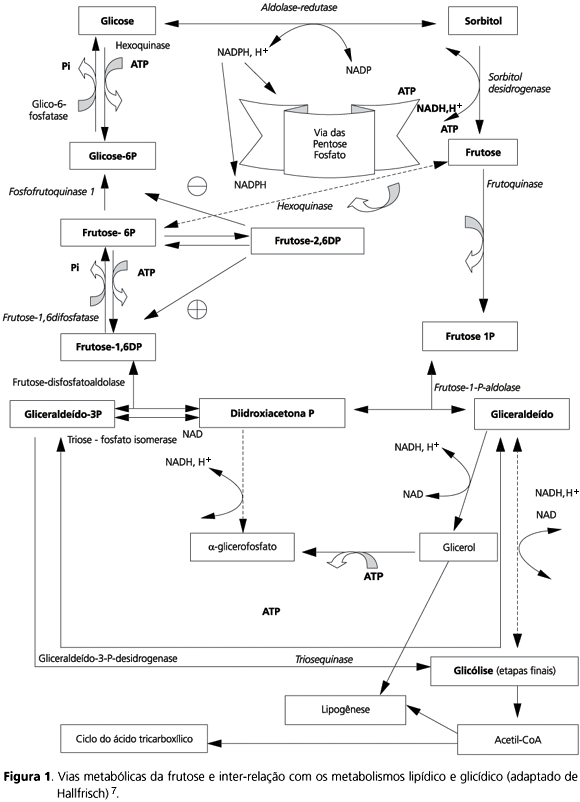This article reviews the metabolism of fructose and sorbitol, their main clinical indications and the consequences of inadequate use. Fructose, an important carbohydrate in the diet, is present mostly in fruits and vegetables; it can also be synthesized from glucose in the organism, through the sorbitol. Fructose is known for its metabolism's inherent errors, whose clinical manifestations are potentially serious, as well as for its use as a glucose substitute in the diabetic patients' diet, due to its metabolism not being dependent from insulin. In the last years, especially in developed countries, the consumption of fructose has increased considerably, due to its use as a sweetener in industrialized foods. However, adverse side-effects may occur with the excessive ingestion of fructose, such as the increase in blood's triglycerides and cholesterol. Therefore, to know which are the patients' normal blood levels is quite important for establishing the safe amount of fructose to be prescribed, as well as for allowing the screening of metabolism diseases associated with fructose.
metabolic diseases; physiopathology; fructose; insulin; metabolism



